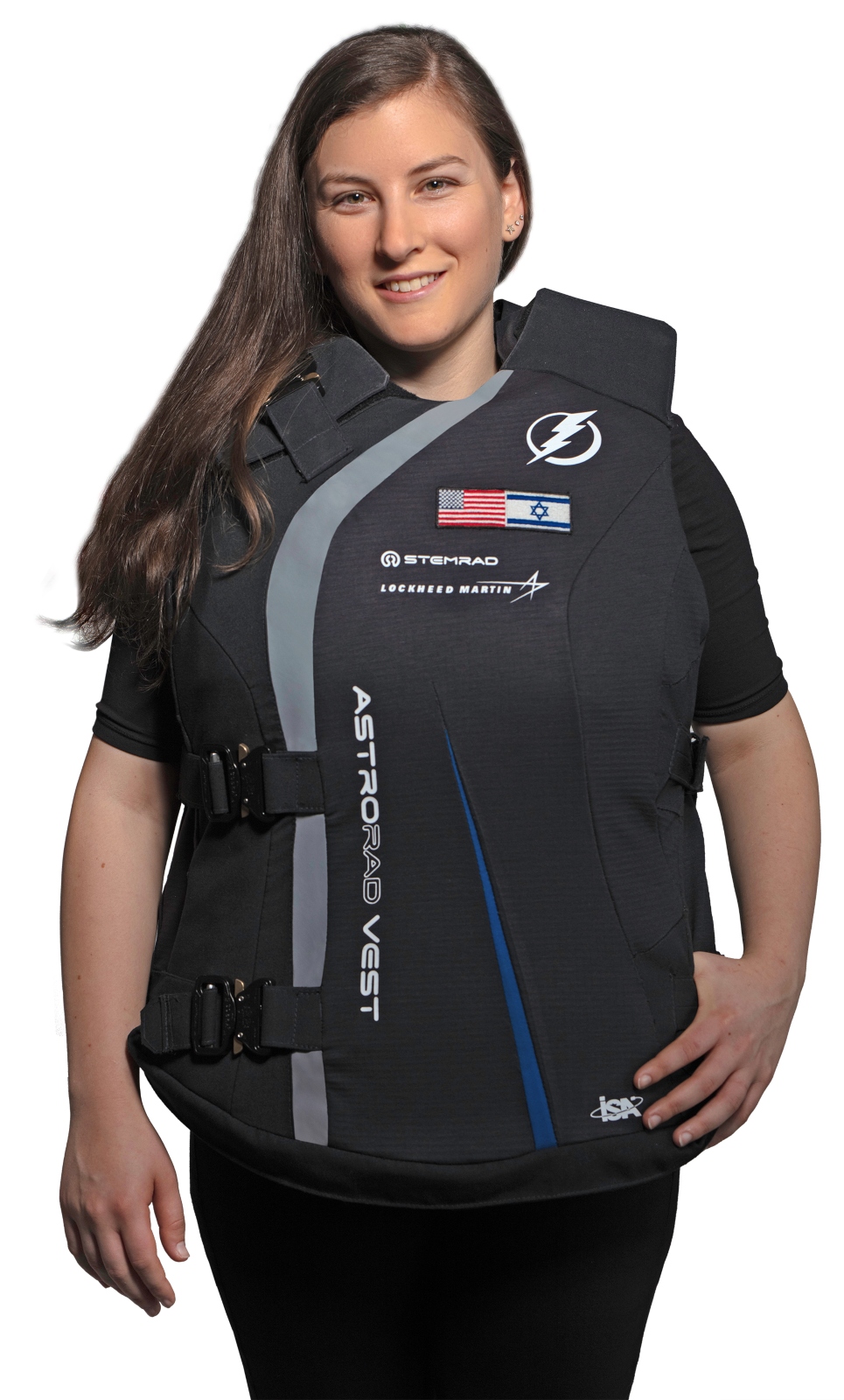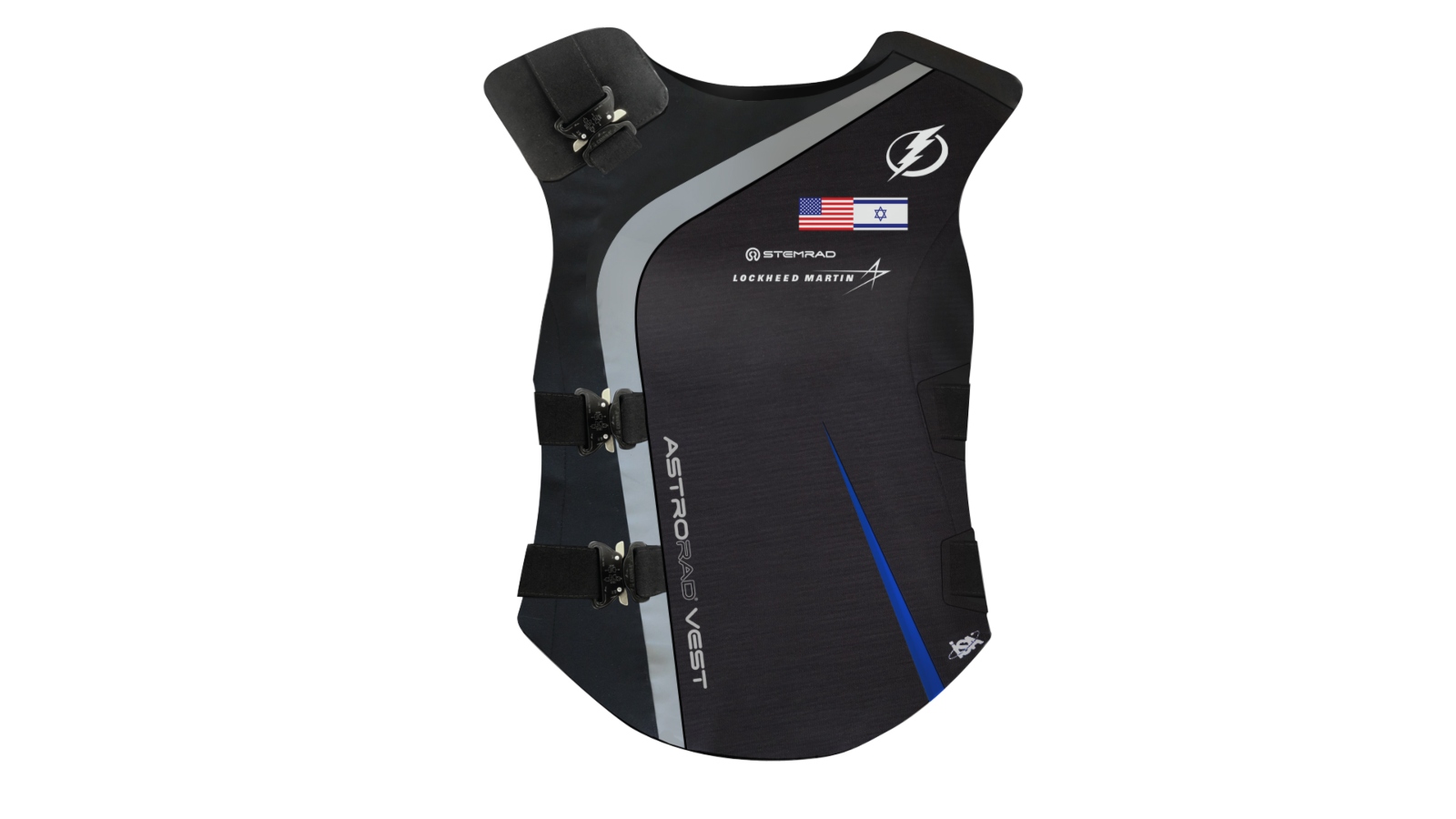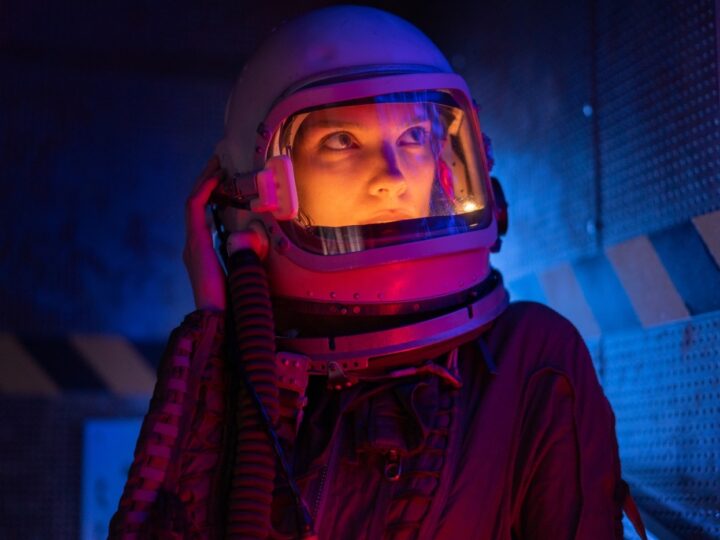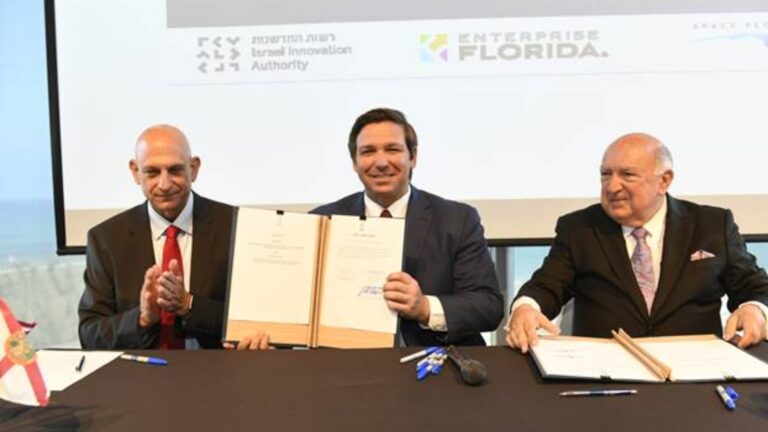Astronauts on the International Space Station will soon test an Israeli antiradiation vest.
A prototype of the AstroRad vest by Tel Aviv-based StemRad is part of 4,600 pounds of science experiments to be delivered to the station in early November aboard a Northrop Grumman Cygnus spacecraft.

Designed to protect bone marrow and sensitive organs against deep space radiation, the thermoplastic vest is made of high-density polyethylene.
Women in the International Space Station will try out a prototype of the vest tailored for protecting breasts and ovaries in addition to bone marrow, lungs, stomach and colon. They will report back on its fit, form and function.
Next year, a mannequin will wear the AstroRad vest aboard an unmanned test of the Orion space command module intended later to carry four astronauts to the moon’s orbit. Scientists want to determine how well it can shield human organs compared to a test dummy without the vest.
“This evaluation together with radiation protection data obtained from the AstroRad experiment on Orion Exploration Mission-1 will provide NASA with all the necessary information for assessing the AstroRad as essential personal protective equipment for future manned deep space missions such as Orion EM-2 and any future missions to Mars,” said Israel’s Science and Technology Ministry.
Last July, NASA invited StemRad to demonstrate the AstroRad vest at a Washington event commemorating the 50th anniversary of the Apollo 11 landing.
Over the past 19 years, more than 2,900 investigations have been conducted aboard the International Space Station by nearly 4,000 investigators representing 108 countries.







